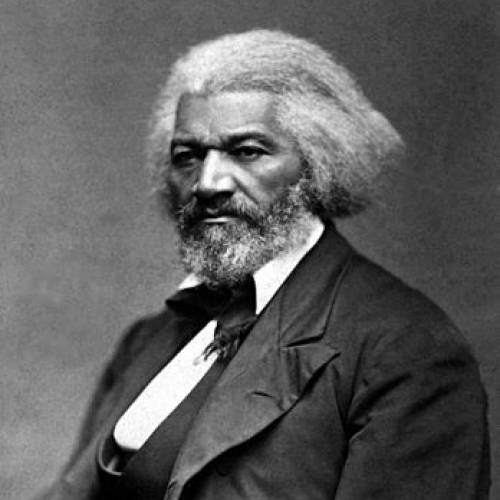 https://heaven.world/en/frederick-douglass
https://heaven.world/en/frederick-douglass
Firstname
Frederick
Lastname
Douglass
Name
Frederick Douglass
lived from:
1818-00-00
lived until:
1895-02-20
Frederick Douglass was an African-American social reformer, abolitionist, orator, writer, and statesman. After escaping from slavery in Maryland, he became a national leader of the abolitionist movement in Massachusetts and New York, gaining note for his dazzling oratory and incisive antislavery writings. In his time he was described by abolitionists as a living counter-example to slaveholders' arguments that slaves lacked the intellectual capacity to function as independent American citizens. Northerners at the time found it hard to believe that such a great orator had once been a slave.
Douglass wrote several autobiographies. He described his experiences as a slave in his 1845 autobiography, Narrative of the Life of Frederick Douglass, an American Slave, which became a bestseller, and was influential in promoting the cause of abolition, as was his second book, My Bondage and My Freedom. After the Civil War, Douglass remained an active campaigner against slavery and wrote his last autobiography, Life and Times of Frederick Douglass. First published in 1881 and revised in 1892, three years before his death, it covered events during and after the Civil War. Douglass also actively supported women's suffrage, and held several public offices. Without his approval, Douglass became the first African American nominated for Vice President of the United States as the running mate and Vice Presidential nominee of Victoria Woodhull, on the Equal Rights Party ticket.
Douglass was a firm believer in the equality of all peoples, whether black, female, Native American, or recent immigrant. He was also a believer in dialogue and in making alliances across racial and ideological divides, and in the liberal values of the American Constitution. When radical abolitionists under the motto "No Union With Slaveholders", criticized Douglass' willingness to dialogue with slave owners, he famously replied: "I would unite with anybody to do right and with nobody to do wrong."
One biographer argues:
The most influential African American of the nineteenth century, Douglass made a career of agitating the American conscience. He spoke and wrote on behalf of a variety of reform causes: women's rights, temperance, peace, land reform, free public education, and the abolition of capital punishment. But he devoted the bulk of his time, immense talent, and boundless energy to ending slavery and gaining equal rights for African Americans. These were the central concerns of his long reform career. Douglass understood that the struggle for emancipation and equality demanded forceful, persistent, and unyielding agitation. And he recognized that African Americans must play a conspicuous role in that struggle. Less than a month before his death, when a young black man solicited his advice to an African American just starting out in the world, Douglass replied without hesitation: "Agitate! Agitate! Agitate!"
^ "Frederick Douglass". Retrieved April 20, 2011.
^ "How Slavery Affected African American Families, Freedom's Story, TeacherServe®, National Humanities Center". National Humanities Center. Retrieved October 31, 2012.
^ "Biography – Early Life". Frederick Douglass Heritage. Retrieved Dec 22, 2016.
^ "Frederick Douglass Biography". Retrieved September 4, 2012.
^ Willard B. Gatewood Jr.. "Frederick Douglass and the Building of a 'Wall of Anti-Slavery Fire', 1845–1846. An Essay Review". The Florida Historical Quarterly. 59: 340–44. JSTOR 30147499.
^ Stewart, Roderick M.. "The Claims of Frederick Douglass Philosophically Considered". In Bill E. Lawson; Frank M. Kirkland. Frederick Douglass: A Critical Reader. Wiley-Blackwell. pp. 155–56. ISBN 978-0-631-20578-4. Retrieved March 18, 2011. "Moreover, though he does not make the point explicitly, again the very fact that Douglass is ably disputing this argument on this occasion celebrating a select few's intellect and will — this fact constitutes a living counterexample to the narrowness of the pro-slavery definition of humans."
^ Social Studies School Service. Big Ideas in U.S. History. Social Studies. p. 27. ISBN 978-1-56004-206-8. Retrieved March 18, 2011.
^ Matlack, J... The Autobiographies of Frederick Douglass. Phylon, 40, 16. http://doi.org/10.2307/274419 "He spoke too well....Since he did not talk, look, or act like a slave, Douglass was denounced as an imposter."
^
^ Frederick Douglass. The Anti-Slavery Movement, A Lecture by Frederick Douglass before the Rochester Ladies' Anti-Slavery Society. Retrieved October 6, 2010. From page 33: "My point here is, first, the Constitution is, according to its reading, an anti-slavery document; and, secondly, to dissolve the Union, as a means to abolish slavery, is about as wise as it would be to burn up this city, in order to get the thieves out of it. But again, we hear the motto, 'no union with slave-holders;' and I answer it, as the noble champion of liberty, N. P. Rogers, answered it with a more sensible motto, namely—'No union with slave-holding.' I would unite with anybody to do right; and with nobody to do wrong."
^ Roy E. Finkenbine. "Douglass, Frederick"; American National Biography Online 2000. Access Date: March 16, 2016
Washington (DC), United States
https://en.wikipedia.org/wiki/Frederick_Douglass